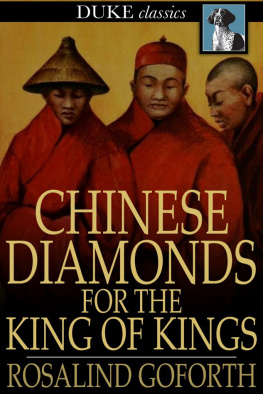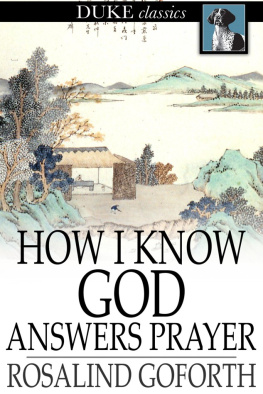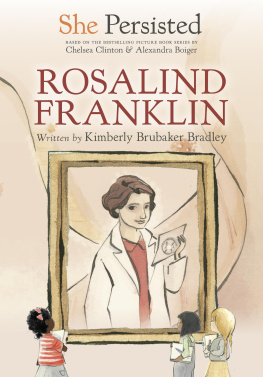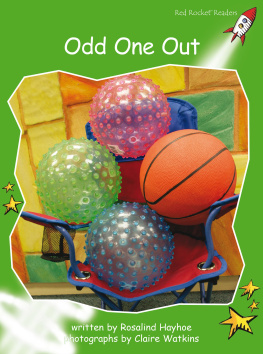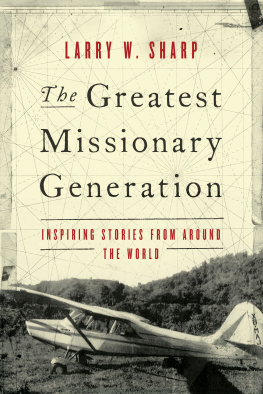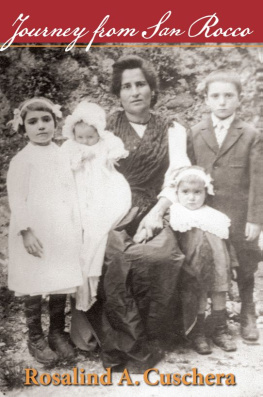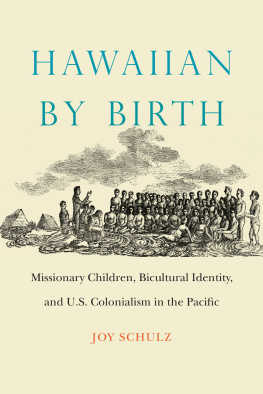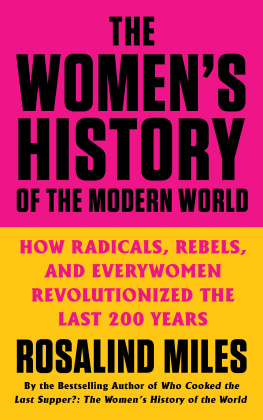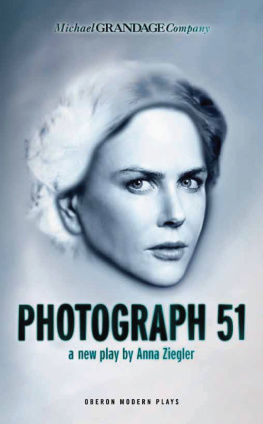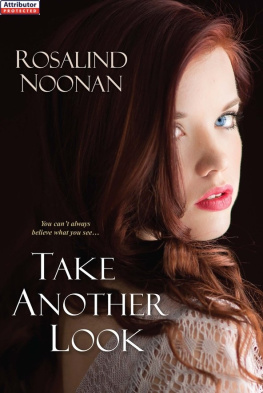CHINESE DIAMONDS FOR THE KING OF KINGS
* * *
ROSALIND GOFORTH
*
Chinese Diamonds for the King of Kings
First published in 1920
ISBN 978-1-62013-514-3
Duke Classics
2014 Duke Classics and its licensors. All rights reserved.
While every effort has been used to ensure the accuracy and reliability of the information contained in this edition, Duke Classics does not assume liability or responsibility for any errors or omissions in this book. Duke Classics does not accept responsibility for loss suffered as a result of reliance upon the accuracy or currency of information contained in this book.
Contents
*
Foreword
*
Whole libraries have been written on Christian evidences. The resourcesof philosophic and scientific research have been drawn up in defence ofthe Christian faith. Yet important as these are, it may be questionedwhether any or all of them together bring home to the heart suchconviction as does the story of a redeemed soula soul lifted out ofthe fearful pit and miry claycleansed, purified and established inrighteousness. Whatever intellectual difficulties may occur, acountenance illumined with a light that is not of this world isirresistible.
Henry Ward Beecher spoke of a nest of infidels he had encountered uponwhom argument made little impression. There lived in the same village ahumble washerwoman of singularly beautiful character. When asked whatthey thought of her the sceptics were silenced. Harold Begbie says ofOld Born Drunk that "he advertised salvation. Before the miracle of OldBorn Drunk the arguments of the tavern atheist melted into thin air."
We are indebted to Mrs. Goforth for having gathered from her longexperience in China a series of instances as convincing as any told byHarold Begbie in "Twice Born Men." They are not the outcome ofgenerations of development, for China has no religious background. Theyare miracles of grace. Luther said, "God is the God of the humble, themiserable, the oppressed, the desperate, of them that are naught. It isHis nature to give sight to the blind, to comfort the broken hearted andto justify the ungodly."
The divine nature is beautifully and impressively illustrated by thesestories of redeemed and glorified ones whose after life verified thereality of the miraculous change. He is able to save unto theuttermost. With Him there is plenteous redemption. Go ye, therefore,and tell it out.
(REV.) R. P. MACKAY, D.D.
Introduction
*
The following sketches are as photographically true as my knowledge ofChinese life and people can make them. They are written primarily as ananswer to the oft met questions, "Do missions pay?" and, "After all, arethere any real Christians in China?"
We missionaries are frequently told that the average church member athome has come to think of missionaries' letters as "too dry to read."Wherefore, my attempt to give missionary facts in a different, possiblymore readable, form. With what success remains to be seen. The littlebook is sent forth with the earnest hope and prayer that those who readthese sketches may come to see the truth of what Paul said: "God hathmade of ONE BLOOD all men under heaven."
ROSALIND GOFORTH.
Kikungshan, South Honan, China, July 24, 1920.
Sketch I - As Silver is Refined
*
Part I - The Birth of a Soul
One sultry afternoon in June, 19, an elderly woman. seated in theshade of her front gateway, the coolest spot she could find, was fanningvigorously in vain attempt to keep cool, discontented mutterings keepingtime to her fan. It was time the long summer siesta ended and for folksto get to work, so thought Mrs. Dwan, but "folks" evidently thoughtotherwise, for the whole village seemed as still and lifeless as agraveyard.
Just as the woman was about to rouse the sleeping household herattention was attracted to a man wheeling a barrow on which lay a sickchild. Putting his barrow down opposite the Dwan's gateway the manwiped his steaming brows as he stepped forward saying, "Honorable Lady,my child is very thirsty, we have come a long way, will you give uswater?"
"Gladly," said the woman, hastening into the inner court as fast as herexcessive avoirdupois would permit. In a moment or two she reappeared,not with ice cold water as in our country, but with a kettle of boilingwater and two bowls.
"Wheel the child into the shade and rest yourself," said the woman asshe filled the bowls; then setting one down beside the sick child, shemotioned to the man to take a seat on the stone steps. "Where are yougoing," she asked by way of opening the conversation.
"I'm taking my child to the foreign doctor at W."
"What!" she exclaimed, with a look of horror, "you are surely nevergoing to venture inside that place! We have heard some terrible thingsabout those people."
"Well," replied the man, "all I can say is this, a neighbor woman ofours went to that hospital perfectly blind and came back seeing almostas well as you or I. A man in my village had a terrible leg, he wouldcertainly have died, but he went there too and came back healed. Hetold us the doctor treated him as well as the patients who could pay,though they knew he was too poor to pay."
"But, why then do people talk so?" persisted Mrs. Dwan.
"You know the proverb," replied the man, with rather a contemptuousshrug, "You can bridle a horse or a mule, but who can bridle a woman'stongue." With this parting thrust and a polite bow, the man caught uphis barrow and hurried on.
Mrs. Dwan's husband was what is known in China as the "leading man" ofhis region. He was a landowner of considerable means, and was widelyknown and sought after as a doctor though he had no knowledge whateverof Western methods of treating diseases, nor of surgery, but was anexpert in the art of "needle pricking," a common Chinese treatment notinfrequently used with fatal results.
As the man with the barrow disappeared in the distance, Dr. Dwanappeared at his dispensary gateway, across the street from where hiswife was sitting. Calling him to her she related what had just passed.The Doctor listened, but said nothing; paying no attention to the fiercedenunciation of the missionaries with which she ended; her husband hadlearnt through many years of bitter experience with her to say littlebut act. When the following morning the Doctor announced his intentionof taking the younger son to the foreign Doctor to have a growth on hisfoot removed, of course, Mrs. Dwan began to storm and rage but to nopurpose, except to give matter of interest to her neighbors, trouble toher household, and sickness to herself. Her fits of temper were soviolent and sustained that it is little wonder Nature usually had herway by a general collapse, when the naturally strong woman would lie fordays as helpless as a child.
As Dr. Dwan started off for the Mission Hospital, it would be too muchto imagine that his mind was quite free from fear or doubt, but hisintense curiosity to see the foreign Doctor about whom he had heard suchconflicting reports, and a desire, if possible, to see something of hismethods of treatment, overcame every other thought. A walk of sometwelve English miles brought them to the city of W. On reaching theMission Hospital they found themselves in the midst of a crowd of sickand suffering ones. Procuring their tickets of admission they joinedthemselves to the queue moving towards the Dispensary door. The momentDr. Dwan found himself and his child, with a dozen or more others,ushered into the Doctor's presence, all fears vanished,who, indeed,could not trust those keen, quiet, kind eyes?

